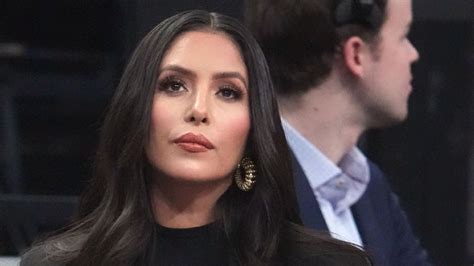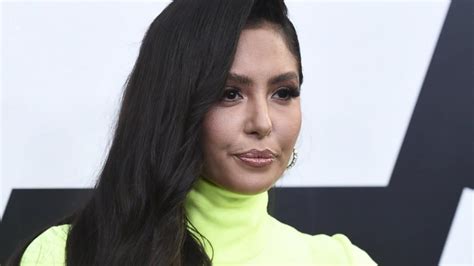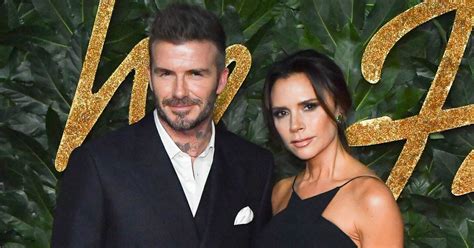
Vanessa Bryant is standing firm on her political endorsements, stating she will not apologize for supporting candidates who align with her values, regardless of public criticism. Her stance comes after social media backlash regarding her political choices, particularly her support for certain candidates whose views differ from those of some of her followers.
Vanessa Bryant has publicly addressed the controversy surrounding her political endorsements, asserting that she will not apologize for supporting candidates whose values resonate with her. In a statement that has ignited further debate on social media, Bryant emphasized her right to support individuals she believes will best serve the interests of the country, even if those choices are met with disapproval. The widow of basketball legend Kobe Bryant has become an increasingly visible figure in political discourse, leveraging her platform to advocate for causes and candidates she supports, a move that has drawn both praise and criticism.
Bryant’s unapologetic stance highlights the increasing intersection of celebrity influence and political activism. In an era where public figures are often expected to remain neutral or cater to a broad audience, her decision to openly express her political preferences has sparked a heated discussion about the role of celebrities in shaping public opinion and the boundaries of personal expression in the digital age.
“I support who I support and that’s that. If you don’t like it, please don’t follow me,” Bryant stated, directly addressing the criticism in a recent social media post. This blunt response underscores her determination to remain authentic to her beliefs, even at the risk of alienating some of her followers.
The controversy began when Bryant publicly endorsed several political candidates, some of whom hold views that are considered controversial by segments of the population. While she did not explicitly detail which endorsements triggered the backlash, sources close to her suggest that her support for candidates with conservative viewpoints on issues such as gun control and immigration have been primary points of contention.
Bryant’s defenders argue that she has the right to express her political beliefs freely, just like any other citizen. They point to her history of philanthropic work and advocacy for various causes as evidence of her commitment to making a positive impact on society. Critics, however, contend that her endorsements could be seen as insensitive, particularly given the diverse and politically varied nature of her fanbase.
“People are entitled to their own opinions, but I also have the right to support who I want,” Bryant explained in a subsequent statement. “I’m not going to be bullied into silence because some people disagree with my choices.”
This sentiment resonates with a growing number of celebrities who are using their platforms to engage in political activism. Figures such as Oprah Winfrey, George Clooney, and Taylor Swift have all openly endorsed candidates and advocated for specific policies, often facing similar backlash. The rise of social media has amplified these voices, allowing celebrities to communicate directly with their followers and bypass traditional media channels.
However, this direct engagement also exposes celebrities to a level of scrutiny and criticism that was previously unheard of. Every tweet, post, and endorsement is dissected and analyzed, and any perceived misstep can quickly escalate into a full-blown controversy.
Bryant’s situation is further complicated by her status as a prominent figure in the sports world and her connection to the legacy of Kobe Bryant. Some argue that her political endorsements could tarnish his memory or alienate fans who admired him regardless of their political affiliations.
Despite the criticism, Bryant remains steadfast in her conviction that it is important for individuals to use their voices to advocate for what they believe in. She has indicated that she will continue to support candidates and causes that align with her values, regardless of the potential backlash.
“I’m not going to let anyone silence me,” she asserted. “I believe in using my platform to make a difference, and that includes supporting the people who I think will do the most good for our country.”
The controversy surrounding Vanessa Bryant’s political endorsements highlights the complex dynamics of celebrity activism in the modern era. As public figures increasingly engage in political discourse, they must navigate the challenges of balancing their personal beliefs with the expectations of their fans and the potential for criticism. Bryant’s decision to stand her ground and refuse to apologize for her choices underscores the growing importance of authenticity and conviction in the world of celebrity activism. The ramifications of her actions will undoubtedly continue to be debated as she remains a prominent voice in the political landscape.
The situation also brings to light the broader issue of political polarization in the United States. As the country becomes increasingly divided along partisan lines, even seemingly innocuous actions can be interpreted as political statements. Celebrities who choose to express their political beliefs are often caught in the crossfire, facing criticism from both sides of the spectrum.
In Bryant’s case, her willingness to engage in political discourse has made her a target for those who disagree with her views. However, it has also earned her the respect of those who admire her courage and conviction. As she continues to navigate the challenges of being a public figure in a politically charged environment, her actions will undoubtedly serve as a case study for other celebrities considering engaging in political activism.
The discussion extends beyond individual endorsements, touching upon the broader responsibility celebrities have to their audience. Some argue that celebrities should use their influence to promote positive change and advocate for marginalized communities. Others believe that celebrities should refrain from expressing their political beliefs, arguing that they lack the expertise to make informed decisions on complex policy issues.
Vanessa Bryant’s situation underscores the challenges of navigating these competing expectations. As a prominent figure with a large following, her actions carry significant weight. Her decision to openly express her political beliefs has sparked a debate about the role of celebrities in shaping public opinion and the boundaries of personal expression in the digital age.
The long-term impact of this controversy remains to be seen. It is possible that Bryant’s political endorsements will alienate some of her fans, but it is also possible that they will strengthen her bond with those who share her values. Regardless of the outcome, her decision to stand her ground and refuse to apologize for her choices underscores the growing importance of authenticity and conviction in the world of celebrity activism.
The debate also highlights the evolving nature of celebrity-fan relationships. In the past, celebrities were often seen as distant figures, separated from their fans by layers of media and public relations. Today, social media has created a direct line of communication between celebrities and their followers, allowing fans to feel more connected to their idols.
However, this increased access also comes with increased expectations. Fans expect celebrities to be authentic and transparent, and they are quick to criticize any perceived deviation from their values. Vanessa Bryant’s situation underscores the challenges of managing these expectations in a politically charged environment.
As celebrities continue to navigate the complexities of political activism, it is likely that controversies like this will become increasingly common. The key for celebrities will be to find a balance between expressing their personal beliefs and maintaining their relationships with their fans. Vanessa Bryant’s decision to stand her ground and refuse to apologize for her choices may serve as a model for other celebrities considering engaging in political discourse.
Bryant’s stance also reignites the discussion surrounding the separation of art and artist, and how much a public figure’s personal beliefs should influence the perception of their work or legacy. In Kobe Bryant’s case, his on-court achievements are widely celebrated, but his widow’s political activities are now prompting a re-evaluation of how fans perceive the entire Bryant family legacy. This is a complex and sensitive issue, with no easy answers.
Ultimately, Vanessa Bryant’s decision to publicly express her political beliefs is a reflection of the growing trend of celebrity activism and the increasing politicization of everyday life. As the country becomes more divided along partisan lines, it is likely that more celebrities will feel compelled to use their platforms to advocate for their beliefs. Whether this trend will ultimately be beneficial or detrimental to society remains to be seen, but it is clear that the intersection of celebrity and politics is here to stay. The reaction to Bryant’s endorsements exemplifies the current climate, where personal choices are often interpreted as political statements, and where public figures are held to increasingly high standards of accountability. Her refusal to back down highlights a commitment to personal conviction, even in the face of public pressure.
The situation also invites a closer look at the role social media plays in shaping public discourse and holding public figures accountable. While social media platforms offer celebrities a direct line of communication with their fans, they also provide a space for criticism and debate. The viral nature of social media can quickly amplify controversies, making it difficult for celebrities to control the narrative surrounding their actions. Vanessa Bryant’s experience serves as a reminder of the power and potential pitfalls of social media in the context of celebrity activism.
Bryant’s statement also raises questions about the motivations behind celebrity endorsements. Are celebrities genuinely passionate about the candidates and causes they support, or are they simply seeking to enhance their public image or align themselves with certain political factions? While it is impossible to know the true motivations behind any individual endorsement, it is important to consider the potential for ulterior motives when evaluating celebrity activism. In Vanessa Bryant’s case, her history of philanthropic work and advocacy suggests that her endorsements are driven by a genuine desire to make a positive impact on society. However, it is also possible that she is seeking to expand her influence and solidify her position as a prominent figure in the political landscape.
Regardless of the motivations behind her endorsements, Vanessa Bryant’s decision to publicly express her political beliefs has sparked an important conversation about the role of celebrities in shaping public opinion and the boundaries of personal expression in the digital age. As the country continues to grapple with political polarization and social division, it is essential to engage in respectful dialogue and to consider diverse perspectives. Bryant’s experience serves as a reminder that even in the most politically charged environments, it is possible to stand up for one’s beliefs and to advocate for the causes that matter most.
The scrutiny surrounding Vanessa Bryant’s political choices also points to a broader societal expectation that public figures should align their actions with their public persona. Bryant, known for her grace and strength in the face of personal tragedy, is now being judged against a different set of criteria, one that demands political alignment with certain values. This expectation can be particularly challenging for celebrities, who often cultivate a carefully crafted public image that may not fully reflect their personal beliefs. In Bryant’s case, her decision to deviate from the perceived norm has resulted in a backlash, highlighting the pressure public figures face to conform to societal expectations.
The incident with Vanessa Bryant also touches upon the evolving concept of “cancel culture” and its impact on public figures. While some argue that cancel culture is a necessary tool for holding individuals accountable for their actions, others believe that it can be overly punitive and stifle free speech. In Bryant’s case, the calls for her to apologize or be boycotted represent a form of cancel culture, as they seek to punish her for expressing her political beliefs. Whether this form of accountability is justified is a matter of debate, but it is clear that cancel culture is playing an increasingly significant role in shaping public discourse and influencing the behavior of public figures.
The discussion around Bryant’s political views underscores the challenge of navigating personal beliefs within a public sphere, especially when those beliefs may diverge from the perceived consensus. Her experience highlights the pressure individuals face to conform to certain ideological norms, particularly in the age of social media, where opinions are easily shared and scrutinized. It is a reminder of the importance of fostering open dialogue and respecting diverse perspectives, even when they differ from our own.
The response to Vanessa Bryant’s political endorsements also sheds light on the complexities of grief and public memory. As the widow of Kobe Bryant, a beloved figure in the sports world, Vanessa Bryant occupies a unique position in the public consciousness. Her actions are often viewed through the lens of her husband’s legacy, and her political choices are no exception. Some argue that her endorsements could tarnish his memory or alienate fans who admired him regardless of their political affiliations. This perspective highlights the challenges of navigating personal beliefs while also honoring the memory of a loved one. It also raises questions about the extent to which a person’s identity is tied to their family’s legacy.
Furthermore, Vanessa Bryant’s case brings into question the idea of whether or not a person’s private actions should be judged against their public image. As a celebrity, she is constantly in the public eye, and her actions are often scrutinized and analyzed. However, she is also a private individual with her own beliefs and values. Should she be expected to conform to a certain standard of behavior simply because she is a celebrity? Or should she be allowed to express her opinions freely, even if they are unpopular? This is a complex issue with no easy answers, and it is one that is likely to continue to be debated as long as celebrities remain in the public eye.
The episode also highlights the power of social media to amplify voices and shape public opinion. In Vanessa Bryant’s case, her initial statement was met with a barrage of criticism on social media, which quickly escalated into a full-blown controversy. This demonstrates the ability of social media to mobilize large numbers of people and to exert pressure on public figures. While social media can be a powerful tool for promoting social change, it can also be used to spread misinformation and to silence dissenting voices. It is important to be aware of the potential pitfalls of social media and to use it responsibly.
The controversy surrounding Vanessa Bryant’s political endorsements is a complex and multifaceted issue that touches upon a wide range of topics, including celebrity activism, political polarization, social media, and cancel culture. There are no easy answers, and it is important to consider all sides of the issue before forming an opinion. Vanessa Bryant’s decision to stand her ground and refuse to apologize for her choices underscores the growing importance of authenticity and conviction in the world of celebrity activism.
Frequently Asked Questions (FAQ)
1. Why is Vanessa Bryant facing backlash for her political endorsements?
Vanessa Bryant is facing criticism because she publicly supports political candidates whose views differ from those of some of her followers. Some perceive her endorsements as insensitive or contradictory to her public image, particularly given the diverse political opinions of her fanbase.
2. What was Vanessa Bryant’s response to the criticism?
Bryant responded by stating that she will not apologize for supporting candidates who align with her values and that if people disagree with her choices, they should unfollow her. She emphasized her right to support who she wants and that she will not be bullied into silence. “I support who I support and that’s that. If you don’t like it, please don’t follow me,” Bryant stated.
3. How does this situation reflect the role of celebrities in political activism?
This situation exemplifies the increasing trend of celebrities using their platforms to engage in political activism. While some praise celebrities for using their influence to promote positive change, others believe they should refrain from expressing political beliefs, arguing they lack expertise on complex policy issues. This event highlights the challenges celebrities face in balancing personal beliefs with fan expectations and the potential for criticism.
4. What is “cancel culture,” and how does it relate to Vanessa Bryant’s situation?
“Cancel culture” refers to the practice of publicly boycotting or shaming individuals for perceived offensive or controversial actions or statements. In Vanessa Bryant’s case, calls for her to apologize or be boycotted for her political endorsements represent a form of cancel culture, which some view as overly punitive and stifling free speech.
5. How does Vanessa Bryant’s status as Kobe Bryant’s widow affect the perception of her political actions?
Her status complicates matters, as some believe her endorsements could tarnish Kobe Bryant’s memory or alienate fans who admired him irrespective of their political affiliations. Her actions are often viewed through the lens of her husband’s legacy, raising questions about whether a person’s identity is inevitably tied to their family’s public image.









